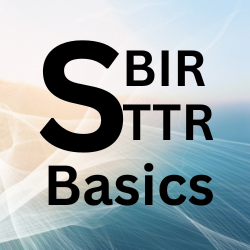Government grants fuel innovation, but transitioning from a university research lab to a for-profit company changes how you manage these funds. As a for-profit entity, the rules are different, and the responsibility is yours. While in academia, dedicated teams handle the complexities of grant administration. As a startup founder, you take on those responsibilities without the safety net. Unfortunately, any missteps can lead to financial penalties, disallowed costs, or legal consequences. Here’s a straightforward guide to the key differences and best practices for managing government grants in a for-profit company.
Rule 1. Timekeeping: Precision Is Non-Negotiable
In Academia:
Effort reporting is often approximate, based on estimated time spent on projects, and reviewed quarterly or semiannually. Administrative staff or grant budgets guide the process.
In Business:
Timekeeping must be daily, detailed, and auditable, especially for SBIR/STTR grants.
- Record labor costs with hourly breakdowns for employees and consultants.
- Maintain accurate records to support grant charges.
- Noncompliance risks repayment, disallowed costs, or False Claims Act violations.
Tip: Adopt a DCAA-compliant timekeeping system from day one.
Rule 2. Accounting: From Budgets to Cost Accounting Standards
In Academia:
Centralized offices manage grants, negotiate indirect rates, and handle expense classification. Researchers focus on science, not financial details.
In Business:
You oversee real-time financial management. Key requirements include:
- Separating direct and indirect costs.
- Properly allocating shared expenses.
- Tracking matching funds (if required).
- Maintaining audit trails for all transactions includes tracking to projects and activities.
- Maintaining adequate documentation for every transaction (receipts, contracts, etc.)
- Monitoring project budgets and spending.
Tip: Hire a grant-experienced accountant and avoid commingling grant and operational funds.
Rule 3. Intellectual Property (IP): Secure and Document Ownership
In Academia:
Universities own most inventions, which their technology transfer offices manage and oversee. Inventorship is determined internally.
In Business:
You must proactively manage IP for federally funded work:
- Disclose inventions to the funding agency for government-funded research within Bayh-Dole timeframes.
- Establish ownership interests, especially with subawards, subcontractors, consortiums, and consultants.
- Protect IP through proper documentation and filings.
- Ensure that government-funded IP contains the required language and disclosure of the government’s interests.
Tip: Maintain an IP log, use NDAs and IP agreements, and consult a qualified lawyer who understands the complex elements related to IP, employee and contractor agreements, and government-funded IP.
Rule 4. Compliance and Reporting: You Are the Grants Office
In Academia:
Grants management offices handle reporting, compliance, and agency communication, providing faculty with reminders and support for processes.
In Business:
You’re responsible for:
- Technical and financial progress reports.
- Equipment and property tracking.
- Subrecipient monitoring.
- Certifications and representations.
Missed deadlines or errors can lead to noncompliance penalties.
Tip: Designate a grants compliance owner and build a reporting calendar with firm deadlines.
Rule 5. Procurement and Subawards: Justify Every Expense
In Academia:
Procurement focuses on streamlined processes, pre-approved vendors, standard subaward agreements, and embedded cost justifications.
In Business:
Every purchase requires justification and documentation.
- Use competitive bids for equipment and services.
- Document vendor selection processes.
- Draft subaward agreements with clear performance, costs, and terms that include any pass-through requirements from the government, if applicable.
- Avoid using the wrong type of agreement; subawards to universities are NOT sponsored research under SBIR and STTR awards. Use the appropriate subaward or subcontract agreement for all entities.
- Track invoicing and payments meticulously.
Tip: Establish procurement policies early to prepare for audits.
Conclusion: Embrace the Rules!
Ultimately, managing government grants as a for-profit company isn’t just about the research. Instead, you must also focus on compliance and building a robust operation. As a startup or small business, you lack the infrastructure of a grants office. Therefore, you should focus on acquiring expertise in the business aspects of grant management. It is critical to success. Don’t assume you can “figure it out” later. Educate yourself, implement robust systems, and seek professional help when needed. By mastering these rules, you’ll protect your startup and position it to thrive.


